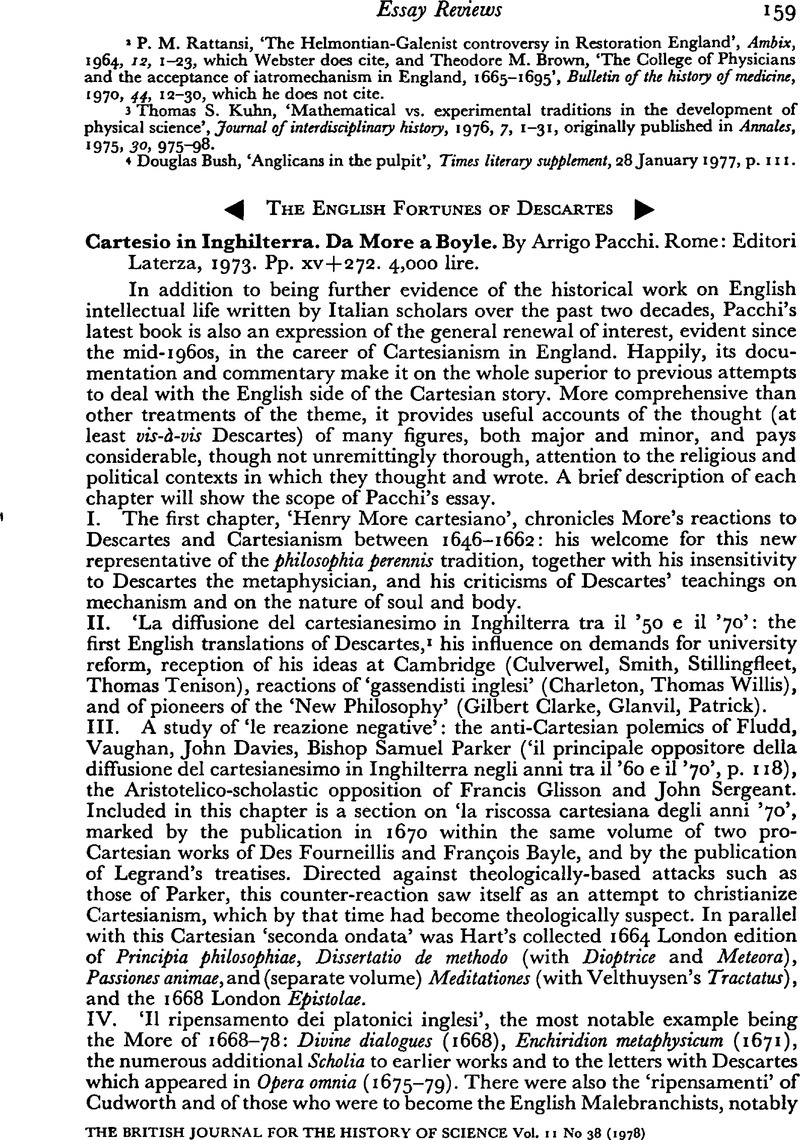No CrossRef data available.
Article contents
The English Fortunes of Descartes
Published online by Cambridge University Press: 05 January 2009
Abstract

- Type
- Essay Reviews
- Information
- Copyright
- Copyright © British Society for the History of Science 1978
References
NOTES
1 A discourse of method (1649)Google Scholar, The passions of the soule (1650)Google Scholar, and Renatus Descartes excellent compendium of musick (1653)Google Scholar. These translations indicate considerable interest in Descartes' thought (at least the exoteric works) in the period immediately following his death and the Civil Wars. Who were the translators? Pacchi produces fresh evidence to suggest that Walter Charleton translated the Compendium musicae, though he finds no name for the translator of the Passions. As for the Discourse, he mentions the interesting suggestion, due to Paolo Cristofolini (and developed in Cartesiani e sociniani: studio su Henry More, Urbino, 1974, pp. 41–5)Google Scholar, that perhaps this was prepared by someone working under More's influence, if not by More himself. Pacchi however prefers to reserve judgement on the matter, noting simply the Stoic tendencies of the translator evident in the preface.
2 The apology, ‘To the Reader’, p. 480.Google Scholar
3 A widespread belief of More's day. See e.g. Hill, C., Antichrist in seventeenth-century England, Oxford, 1971, chapters III, IVGoogle Scholar, and passim; Miller, John, Popery and politics in England, 1660–1688, Cambridge, 1973, pp. 72, 87–8.CrossRefGoogle Scholar
4 The apology, p. 482.Google Scholar More's italics.
5 Loc. cit. More's italics.
6 Loc. cit. More's italics.
7 The apology, pp. 483–9.Google Scholar I have omitted the commentary following each rule.
8 Ibid., p. 494.


